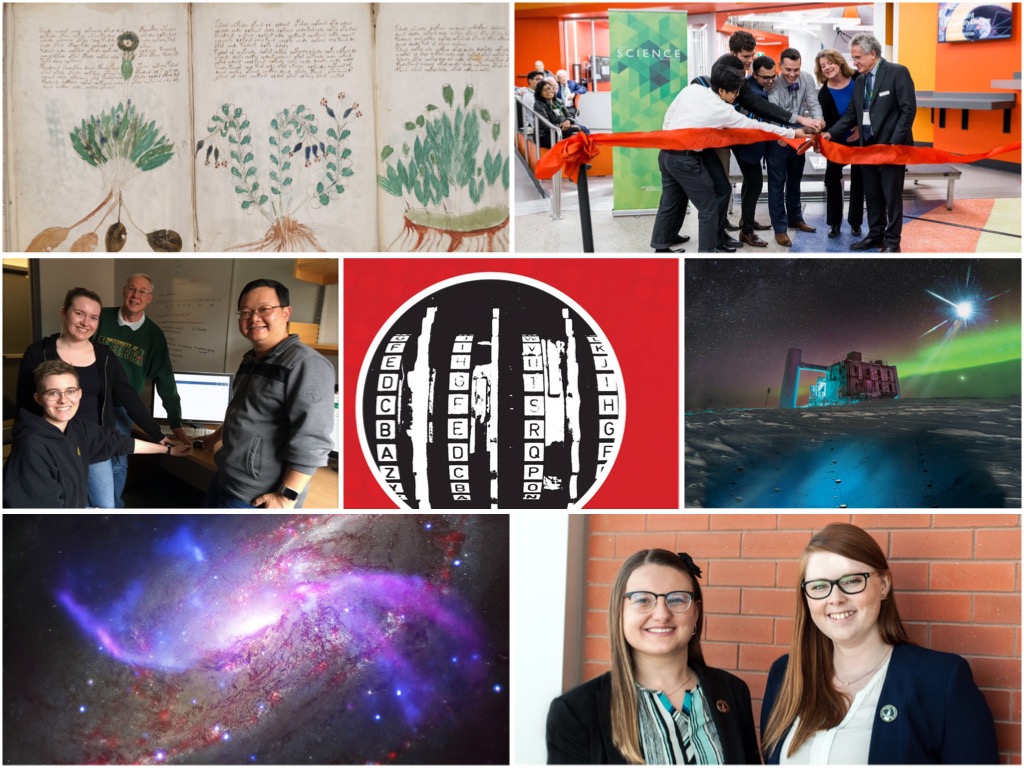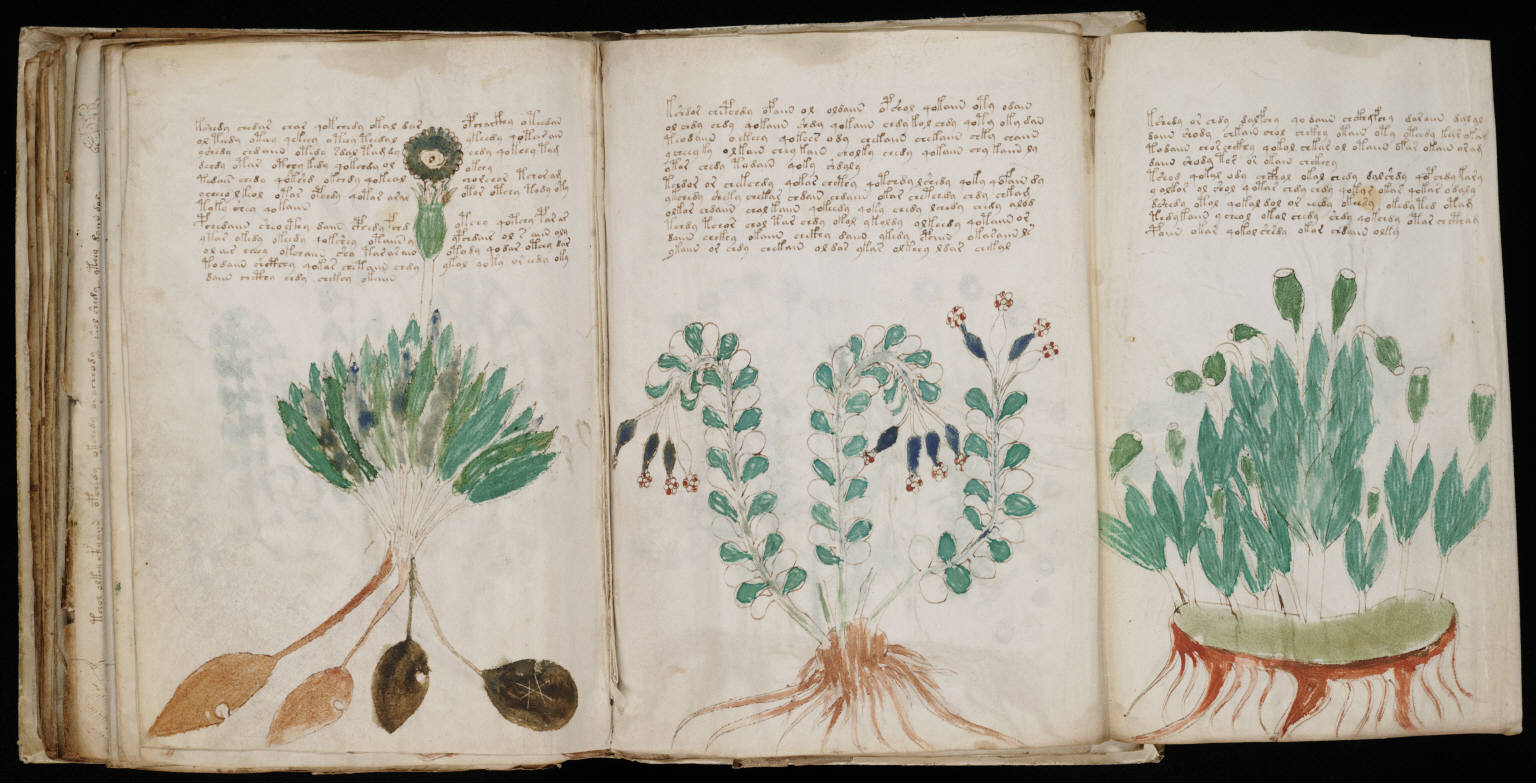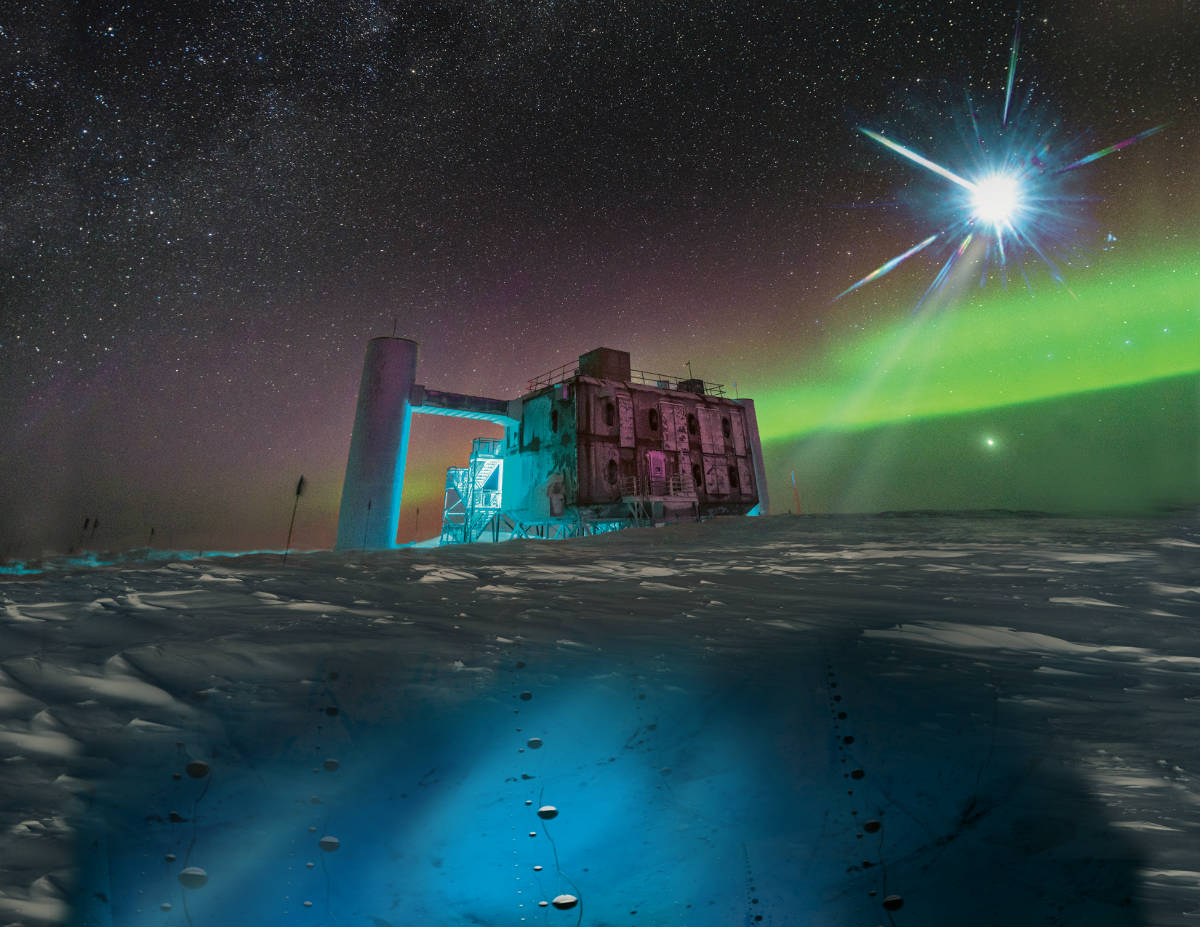
It's been a remarkable year for the Faculty of Science. Join us as we look back at some of the accomplishments we celebrated this year. Clockwise to centre: Using AI to take on the Voynich Manuscript, opening the Student Innovation Centre, a cosmic neutrino discovery, the launch of the Faculty of Science diversity hub, the launch of online courses on black holes and programming video games, and a sold-out public lecture on the history of the Enigma machine.
Bringing ideas to light: Opening of Student Innovation Centre
In September, the Faculty of Science opened our brand new Student Innovation Centre at our annual Alumni Weekend event. The centre spans more than 450 square metres across two floors in theCentennial Centre for Interdisciplinary Science, outfitted in striking colours, furniture, and layout modelled after business incubators and startup offices that encourage creativity and innovation. Created to support extracurricular student projects, the centre is a cutting-edge interdisciplinary collaboration space built to help empower student creativity and bring their ideas to life.
The little satellite that could: AlbertaSat's Ex-Alta 1
Alberta's first satellite, Ex-Alta 1, has completed its journey in space after orbiting Earth for 18 months. Launched in May 2017, Ex-Alta 1 weathered 91 solar storms during its mission, as it diligently recorded and transmitted data to the AlbertaSat team. The cubesat orbited Earth 8,301 times and travelled over 300 million kilometers in space. Its mission complete, Ex-Alta 1 burned up in the atmosphere this fall, but AlbertaSat's mission is far from over. The team is already hard at work on Ex-Alta 2, a successor satellite that will focus on a new mission: wildfire monitoring.
Science Summer Camps
It was another record year for Science Summer Camps in 2018. Celebrating the success of Science Summer Camps 2018. This summer, over 1,500 campers joined us on campus, taught by 30 student summer camp leaders and supported by more than 50 volunteers. Between classroom demonstrations, hands-on experiments, and tours to UAlberta's premier museum collections, these student leaders helped ensure campers never had a dull moment. Together, we launched 200 rockets, created over 1,000 video games, and used more than 40 litres of liquid nitrogen to make our own ice cream.
Indiana Jones-esque: Using AI to uncover ancient mysteries
Computing scientists at the University of Alberta captured the imaginations of people around the world this year with a story featuring Professor Greg Kondrak and his research on the ancient Voynich manuscript. Using his expertise in natural language processing, Kondrak and his graduate student Bradley Hauer, solved a centuries old mystery by identifying the language the manuscript was written in-ancient Hebrew. The story generated 500 media stories in 65 countries around the world, reaching more than 800 million people.
The hub for diversity in the Faculty of Science
We know that improving diversity requires a focused and intersectional approach. Fostering diversity in science brings new perspectives, insights, and innovation to our classrooms and to our research-intrinsically improving the work that we do and the programs we offer. That's why we launched our new diversity hub on the Faculty of Science website this year, highlighting the important work done by our staff, faculty, and students, as well as featuring important grassroots initiatives and student groups that champion diversity, including Ada's Team, UAlberta Working for Inclusivity in Chemistry, and Women in Scholarship, Engineering, Science, and Technology (WISEST).
The new era of astrophysics: Multimessenger astronomy
Astronomers have had a blockbuster year. In July, an international team of scientists identified a cosmic source of neutrinos, the ghostly subatomic particles that can travel unhindered for billions of light years from the most extreme environments in the universe to Earth. They have detected the merger of two city-sized neutron stars, each more massive than the sun. The discoveries were heralded as evidence that a "new era of multimessenger astronomy" has arrived.
Beyond the imitation game: Inside the Enigma machine
In October, the Faculty of Science hosted a public lecture on the history of the enigmatic Enigma machine. The Enigma machine, a device invented in 1918 that was used to encrypt secret communications in Hitler's Germany, has a remarkable story. Its inner workings marked the dawn of modern encryption technology and overcoming it was critical in bringing an end to World War II. The event, attended by more nearly 400 people in the Centennial Centre for Interdisciplinary Science and more than 4,000 online, features UAlberta ProfessorPeter Berg fromAugustana, andDavid O'Keefe, an award-winning historian, professor, and best-selling author fromMarianopolis College in Montreal. Missed the event? No problem. You can watch the live recording on Facebook Live or on our YouTube channel.
Going digital: Online learning
In 2018, the Faculty of Science added two online learning experiences to our robust and award-winning portfolio. The first, Problem Solving, Programming and Video Games, is a new course focused on life skills in the 21st century-computational problem-solving and computer programming. The second is Astro 101, a new online course by the University of Alberta, is educating students and the public on black holes-and busting some of the biggest myths orbiting these captivating subjects.
The University of Alberta offers a number ofmassive open online courses (MOOCs), including Astro 101, four paleontology courses, and several courses in other disciplines, including computing science.

